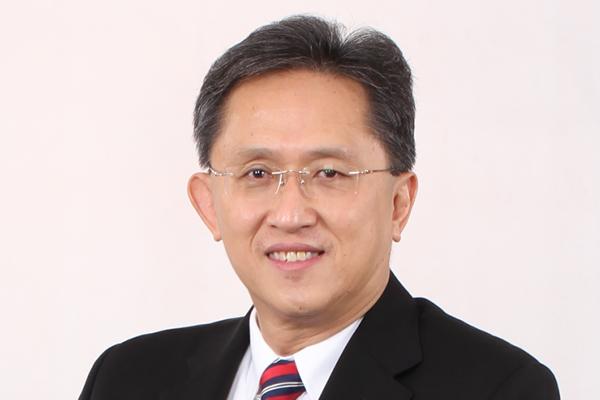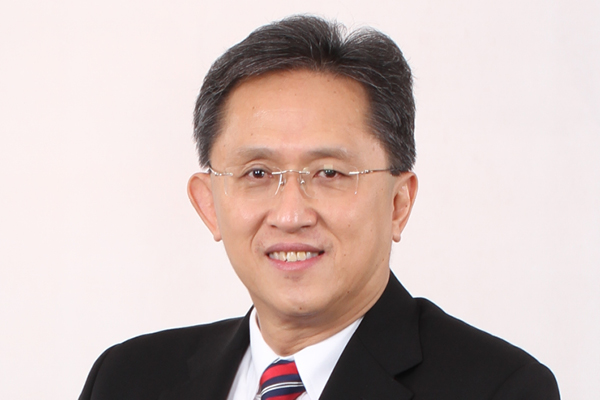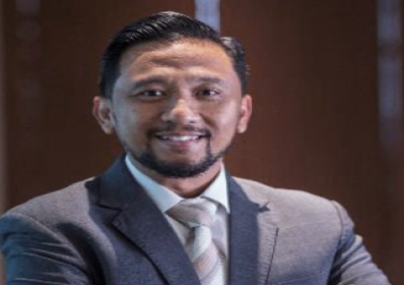
Erwandi Hendarta, the managing partner of Hadiputranto, Hadinoto & Partners, speaks to Ranajit Dam about his strategy for growth, challenges faced by Indonesian law firms, and the development of the local legal market
ALB: Congratulations on the new role. How would you describe your overall strategy for the firm?
Hendarta: Currently, we have six practice groups (Corporate & Trade, Capital Market, Finance & Project, Intellectual Property, Tax, and Commercial Dispute Resolution); and around 130 lawyers – a lot by Indonesian standards. This includes 13 partners, five foreign counsel or consultants and 10 associate partners. This means we can offer both depth and breadth in terms of legal services. Hence, we are a one -stop shop for commercial legal services. The overall strategy, then, is how to balance things to achieve an optimum level of size, of market share to go with profitability. Personally, I don’t believe that if you have the largest market share, you’re the biggest. Your profitability needs to be commensurate to that, so I want to look at our size, which will determine our market share, and also at profitability, which reflects whether we are doing things correctly or not.
ALB: As you noted, HHP is one of Indonesia’s largest law firms, and it is also key player when it comes to corporate work. Where do you still see room for growth and improvement? Are there any practice areas you are looking to target?
Hendarta: This again is a two-pronged strategy. You want to maintain your strength in the existing work you’re doing, but then you also want to be agile to look at growth and improvement. I’ll give you an example: we have to adapt to the market, and this year and in the coming few years, it looks like the market will tend heavily towards infrastructure, as per [President] Joko Widodo’s plans. This means we also need to focus on infrastructure, which fits very well with our depth and breadth. Normally, infrastructure means big projects that require a lot of time and resources. If you are a small firm, then you won’t have these.
Another potential area for growth is in tax. The country is focusing more and more on raising revenue through tax, and this is leading to many tax disputes. As a result, we are doing very well on this front, because there are a lot of tax disputes in the tax courts. Finally, we want to be at the cutting edge of things, and we are lucky in a sense that Indonesia is a developing economy, with a lot of room for growth in terms of technology. For example: e-money, e-commerce… they are all new things for us. So from a law firm’s perspective, this is an exciting new practice area.
ALB: You have worked as a lawyer in Indonesia for almost two decades now. How have you seen the country’s legal market develop during your career?
Hendarta: I’ve been working as a lawyer for about two decades, prior to which I spent about 10 years working as a banker. The Indonesian legal market, I would say, started to grow only from 1997, following the Asian financial crisis. Because at that time – under a lot of stress – corporates realised the importance of a good legal system and good legal advice. As a firm, we were founded in 1989, but things took off faster from 1997. I don’t know whether you’ve noticed, but while there are a lot of law firms in Indonesia today, paradoxically I see few large law firms.
ALB: More of the five-lawyer, ten-lawyer shops.
Hendarta: That’s right. Earlier, you could name a handful of law firms with many lawyers. Suddenly there has been an explosion of law firms, but their sizes are shrinking - in terms of being a one-stop shop for legal services. To us, that is an opportunity. The more sophisticated the clients are, the more the economy grows and work diversifies, the more companies would like to deal with a one-stop shop for legal services – more out of convenience and familiarity than anything else. Thus, we find ourselves in a nice position here.
Take for example, foreign clients. They come to Indonesia and set up their operations, for which they need our corporate and trade legal services. A long the way, they may need financing and also tax and even employment legal advice. Lastly – and hopefully they won’t require this too much – we have a sizable dispute resolution team of about 15 lawyers.
ALB: What about the local market? Is there an increased awareness as to what kind of legal services are available?
Hendarta: Absolutely. In terms of percentage, the number of MNCs among our clients is decreasing, not because we have less MNCs clients but more because we are getting (more) local clients. Anecdotally, I would say that before 1997, people were comfortable to do deals on the backs of napkins so to speak. But after 1997, local business people will ask us whether we have reviewed the legal document before they sign it. Indonesian businesses are now in the hands of second- or third-generation CEOs and they are, in general, educated abroad. They have the view that the legal aspects are very important. These CEOs, while negotiating, want to know exactly what the agreement says. They know the seriousness of dealing with foreign parties because a foreign party will read a written agreement seriously.
ALB: What are some of the challenges Indonesian law firms face today in growing their business?
Hendarta: I think the biggest challenge is internationalization or globalisation, given that we are now dealing with more multinationals in the Indonesian market. Law firms face the challenge of educating and improving their lawyers, from being purely domestically focused to becoming comfortable when working at a regional level, or even at an international level. The challenge here, if you want to grow your business, is to provide top-notch legal services combined with a strong local knowledge. And then on the other side of the coin, you need to also have fluency in dealing at the regional and international level.
Now how we overcome the challenge is that we have a very rigorous recruitment system because we want to recruit the best talent out there. The best knowledge is one thing, but we want to see a lawyer who is passionate. Maybe this word is a cliché, but in reality, it’s not. It is important because as a law firm, when you’re dealing with regional and international clients, they are very demanding because they are used to that kind of level of services. They are not going to settle for us. Clients come from places like Singapore, Hong Kong, London and New York, and they expect us to behave like lawyers do in their own jurisdiction. So you can imagine, you have a local guy and suddenly he is dealing with international transactions. We need to have somebody which is passionate about being be a good lawyer. That’s the only driver to make somebody really work long hours and upgrade themselves to be close to this regional and international standard. So recruitment is important.
Secondly, we have a very rigorous internal professional development, maybe the best in the country. We have curricula, we have schedules, and we’re really serious about improving fresh graduates. Those sound maybe quite so simple, but again the trick is in the serious execution. If you only say it without executing it, then you will not overcome this. But we have been doing this for many, many years so it’s nothing new. This is not a secret formula, just common sense – recruitment and professional development, and then we execute it very well.
ALB: What does the next year hold for the firm?
Hendarta: Next year, a slowdown in the economy may be expected. The way we see it, the slowdown may bring different kinds of work such as restructuring and other related areas. When things slow down, we ask our people to take internal classes and improve. Also when things are slow, there may be lawyers who will be looking to change their firm, thus giving us the opportunity to increase our talent pool. Whether it’s up and down, we will be prepared. I am also a veteran of restructurings, and we also have the credentials and experience to get things done when the economy is slowing down.
CV |
1985-1990 Bank Indonesia Central banker |
1994-1996 Schroders Indonesia Investment Banking |
1996-present Hadiputranto, Hadinoto & Partners Senior Partner, Banking & Finance |
2013- present Hadiputranto, Hadinoto & Partners Practice Group Head, Finance & Projects |
July 2015- present Hadiputranto, Hadinoto & Partners Managing Partner |


